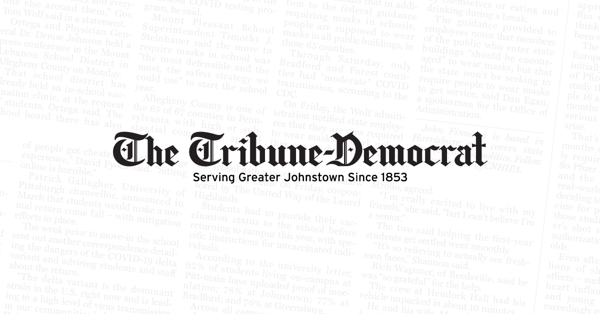
In early June, I drove from Johnstown to a concert in Cleveland. Along for the trip was one of my closest friends (we’ll call him John), who, for various reasons, I had been in contact with less frequently over the past few years.
Before the trip, I suffered from some anxiety about engaging with John over politics, which has served as one of the mainstays of our friendship. One of the reasons for the anxiety was that my political positions have changed quite substantially over the past few years and have diverged from John’s.
Fearful of being treated as a heretic or apostate and written off, I almost avoided the experience, as I had done on several occasions before with others in my old circle of thought. As it seemed to me that the country was tearing itself apart in an onslaught of political polarization with no end in sight, I thought it best to hunker down and refine my ideas before re-engaging in the world.
Fortunately, I didn’t let my anxieties get the best of me, and we immediately began discussing the state of American politics. To my surprise, John not only met with me in a productive back-and-forth, but he was also eager to genuinely wrestle with my side of the argument rather than simply wrestle with me.
When I was younger, I was commonly called “passionate” because of my political positions. I tried to dominate the conversation and master my political adversaries at every opportunity I had, viewing debate and discussion as adversaries.
My experiences with John were very similar and I assumed that these habits would continue with him, even though I had moved away from those behaviors.
After all, this is what we see on cable news, Twitter threads, Facebook replies, or TikTok spots.
I was wrong to think that, though. My ignorance and assumptions prior to our discussion almost prevented me from having a very productive and meaningful conversation.
I learned a few things on that trip. The most important thing was that he should not assume the worst of others. This takes some courage on our part to put ourselves out there.
Instead of shunning and dismissing others, I propose that we embrace some courage in our political conversations. This means we are bold enough to listen and not just wait our turn to speak.
Instead of wanting to pick a fight with someone at the Thanksgiving table or at a restaurant because they’re wearing the colors of your political opponents, try engaging in a productive conversation.
Unfortunately, we have very few role models to guide us toward such productive conversations. If my experience with John showed me anything, it’s that we have to be brave enough to try productive conversations on our own.
John and I quickly realized that even though we disagreed on big issues, we adopted a decorum of civility, where each listened to the other and worked to find common ground or at least try to understand the other’s point of view .
Civility is the first step we must all be willing to take.
You may disagree profoundly, but hopefully you’ll have a chance to understand why the person you’re talking to feels the way they do, and then you’ll have a chance to voice your opinions.
Don’t treat it like a fight and don’t assume because you’re red and he’s blue that he’s automatically your enemy.
Most of us want to see the country progress and see the welfare of our fellow citizens improve. If we are willing to give those across the aisle the benefit of the doubt toward good will, we have already accomplished something splendid.
If we can step away from the keyboard combat and sit quietly across from each other in a real-life, face-to-face engagement, and walk away feeling like you’ve at least gained some knowledge, even better
Democracy only works when we are willing to dialogue with each other. If I can contribute a small part to this, I will be grateful to have at least tried.
So, in the coming months leading up to the 2024 election, I look forward to sharing some fundamental constitutional and political ideas with the Johnstown community in a civil way.
Many people have had no formal interaction with American history and government since graduating high school.
This is an area where I hope to help educate the community and engage with others so that we as a community get to know each other better so that more people can have courageous and civil conversations with those around them and mitigate the animosity that often we see around us. , albeit on a very small scale.
Mark A. Conlon is an assistant professor of secondary education and director of the social studies certificate program at Pitt-Johnstown.
[ad_2]
Source link





